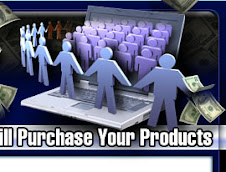Written by SaleHoo.com © All Rights Reserved
Buying and selling wholesale goods is frequently viewed as a sort of 'get rich quick' scheme, where sellers can make enormous profits from very little investment or work. Three months after they started, people just don't understand why things haven't gone according to plan! There are four myths in particular that seem to lead would-be sellers astray time and time again.
Myth #1: Ebay is the best place to sell your wholesale goods.
Now this is a particularly popular one. As the world's biggest marketplace, eBay has made its fair share of millionaires. What you don't hear about so commonly, is all the people who struggle to make a profit from eBay because 100 other people are selling the exact same products - for more competitive prices.
This is not a new situation. Supermarkets and large discount stores often run at a loss on some items in order to attract more customers. For small or new sellers, this is a deadly scenario.
The fact is, eBay is simply too competitive in some categories. Electronics, jewelry, designer clothing and computer games are all dangerous territory for the new seller. You won't stand a chance against established sellers who've already got a strong following and highly competitive prices.
So what should you do? If your product falls into these or any other highly competitive category, I recommend shifting your focus to less competitive markets such as selling through classified newspapers in your local area.
While you won't be reaching audiences of the size that online auctions sites such as eBay provide, buyers that use these alternative mediums to purchase goods are 9 out of 10 times more likely to pay significantly more for products. Not only will your margins can be much higher, you'll also have far less competition to deal with.
It's also a good idea to try using eBay international sites such as www.ebay.co.uk or www.ebay.com.au, as well as other auction sites with less competition such as www.trademe.co.nz and www.ubid.com. I find that these sites give consistently higher margins compared to eBay US, and the number of buyers is still very high.
One advantage of eBay US however, is that the huge amount of competition makes it a brilliant place to pick up cheap as dirt goods to sell elsewhere! It's not uncommon to find best prices on eBay.
Myth #2: You can find all your wholesale sources online.
The Internet provides easy access to a great many wholesalers these days, and it's a quick way of making initial contacts. However, it certainly doesn't provide access to all wholesalers. If you're serious about finding the best wholesale prices for your products, then it pays to check out other sources as well.
Try looking through trade magazines such as Closeout News and Wholesale Merchandise, to name just a few. With less people vying for stock, there's a good chance you'll find some exceedingly good prices tucked away in the corners!
And another thing, in my experience, building up personal relationships with sellers is absolutely essential for getting the best priced goods. So whether you've found your supplier online or in a magazine, make a phone call, start up an email exchange, or have regular chats on MSN and get to know them.
The time you spend building a relationship will not only mean you're in a stronger position to get better prices, but, because you know your supplier, you'll be more confident that things will go smoothly when you finally do place your order.
Myth #3: Pricing research is unnecessary and takes up too much valuable time.
Whenever I mention this one, people always chorus:'But of course we know research is important!' Well why don't you spend more time doing it then?
The amount of people that pass over pricing research constantly amazes me. Everyone always agrees that it is important to research prices, but when it comes down to it, they seem to think that they just 'know' how much items cost wholesale, and how much profit they are likely to make later.
But how can they just 'know'? This is not information we're given at birth!(Or perhaps I'm just unlucky!) Prices are constantly in flux, and carrying out some decent (and yes, time-consuming) research is essential to a successful business for two important reasons:
1. Firstly, it's important to get a good idea of the average resale price for your item before you get started. For a number of popular items (DVDs, electronics and computer games in particular), the profit margins tend to be very low. Despite this, many sellers just see the popularity of the item and dive in head first. Overly-saturated markets just mean a hell of a lot of work for very little in return. Throw big, established sellers into the mix and it's almost impossible to compete. But you won't know this until you research it first! So visit auction sites, read classified ads and any material you can get your hands on until you have a good idea of exactly what you're going to get.
2. The second reason for research is that your preconceptions of value may be completely wrong. People have a tendency to believe that 'wholesale' automatically means a fifth of the retail price. This is usually totally out of line! Some sellers have emailed me in shock when they realize that they actually have to spend a significant amount of money on their wholesale stock. 'I always thought that purchasing a container of wholesale plasma TVs would only require a few hundred dollars investment, but it looks more like several thousand,' wailed one seller recently, 'Am I looking in the wrong place?' Well, I'm sorry to shatter your hopes and dreams, but buying wholesale doesn't always mean huge profits for very little investment. For some items, such a scenario is possible - but only if you do the research!
Myth #4: Niche items can be bought from individual wholesalers.
Finding a niche item that no-one else is supplying at a competitive rate is every sellers dream. However, if you think you're going to be able to find a wholesaler supplier for the item by doing a quick Internet search for 'Left-handed Guitar necks' then you couldn't be more wrong.
Niche products are hard to find precisely because they aren't wanted by absolutely everybody. Thus, finding a supplier will take quite a bit of work on your behalf as these items usually can't be purchased from individual wholesalers. Instead, you'll have to contact large wholesalers, or even contact the manufacturer directly.
It'll be a lot harder than you think, but if you've done your market research effectively and you take the time to find a good supplier, then your hard work will pay off.
About the Author: SaleHoo is one of the fastest growing product sourcing portals on the internet. It contains a database of drop ship, wholesale, closeout and manufacturing suppliers offering thousands of product suppliers to consumers! Located at http://www.salehoo.com, visitors are allowed to sign up for unlimited and lifetime access to the completely searchable database of products and suppliers. The database is regularly updated, ensuring that the latest retail products are always available for purchase and SaleHoo carries the BBB Reliability Seal!





